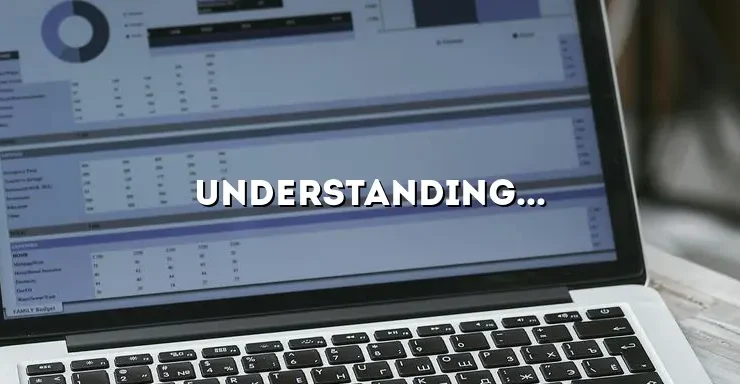
As a business owner, protecting your company from potential risks and liabilities is crucial for long-term success and sustainability. While general liability insurance provides coverage for many common risks, certain industries require additional protection due to their unique nature. This is where specialty liability insurance comes into play. In this comprehensive guide, we will delve into the world of specialty liability insurance, exploring its purpose, coverage options, and why it is essential for businesses operating in specialized fields.
Understanding Specialty Liability Insurance
Specialty liability insurance is a type of insurance coverage specifically designed to provide protection for businesses that face unique risks and liabilities not typically covered by standard general liability policies. It is tailored to the specific needs and risks associated with various industries, ensuring that businesses have adequate coverage for their specialized operations.
Types of Businesses that Require Specialty Liability Insurance
Specialty liability insurance is necessary for businesses operating in industries such as healthcare, technology, construction, consulting, and more. These industries often face unique risks and liabilities that go beyond the coverage provided by general liability insurance. For example:
- Healthcare: Healthcare professionals, including doctors, nurses, and medical practitioners, require professional liability insurance to protect against malpractice claims.
- Technology: Technology companies may need errors and omissions insurance to cover claims arising from software or system failures.
- Construction: Construction companies may require contractor’s liability insurance to protect against claims related to property damage or bodily injury at construction sites.
- Consulting: Consultants may need professional liability insurance to safeguard against claims of negligence, errors, or omissions in their advice or services.
The Purpose of Specialty Liability Insurance
The primary purpose of specialty liability insurance is to protect businesses from potential financial losses and legal liabilities associated with their specialized operations. It provides coverage for claims that may arise due to professional errors, negligence, omissions, or other unique risks specific to the industry.
Without specialty liability insurance, businesses could face devastating financial consequences, including legal expenses, settlements, and damage to their reputation. This insurance ensures that businesses can continue operating even in the face of unexpected claims or lawsuits.
Types of Specialty Liability Insurance Policies
Specialty liability insurance encompasses various types of policies, each tailored to specific industry needs and risks. Here are some common types of specialty liability insurance policies:
- Professional Liability Insurance: Also known as errors and omissions (E&O) insurance, this policy provides coverage for claims arising from professional negligence, errors, or omissions in the delivery of services.
- Product Liability Insurance: This policy protects businesses that manufacture or distribute products against claims related to product defects, injuries, or property damage caused by their products.
- Director’s and Officer’s (D&O) Liability Insurance: D&O insurance provides coverage for claims made against company directors and officers for alleged wrongful acts, such as breach of fiduciary duty or mismanagement.
- Medical Malpractice Insurance: Essential for healthcare professionals, this policy covers claims arising from medical errors, negligence, or wrongful treatment.
- Cyber Liability Insurance: In the digital age, businesses face significant risks related to data breaches and cyber-attacks. Cyber liability insurance protects against financial losses and liabilities arising from these incidents.
Choosing the Right Specialty Liability Insurance Coverage
Selecting the right specialty liability insurance coverage for your business requires careful consideration of several factors. Here are some key considerations to help you determine the most suitable policy:
Evaluating Your Business’s Unique Risks
Start by identifying the specific risks and liabilities associated with your industry and operations. Consider the nature of your business, the services you provide, and any potential vulnerabilities that could lead to claims or lawsuits.
Industry Regulations and Requirements
Research industry regulations and requirements related to insurance coverage. Some industries may have specific insurance mandates or minimum coverage limits that you must adhere to.
Assessing Potential Liabilities
Thoroughly assess the potential liabilities your business may face. This includes analyzing past claims within your industry, understanding common risks, and considering worst-case scenarios.
Policy Coverage and Exclusions
Review the coverage and exclusions of different specialty liability insurance policies. Ensure that the policy you choose adequately covers the specific risks and liabilities your business is exposed to, while also understanding any limitations or exclusions.
Financial Considerations
Take into account your budget and financial capabilities when selecting a specialty liability insurance policy. While it is essential to have comprehensive coverage, it should also align with your business’s financial resources.
Navigating the Claims Process
In the unfortunate event of a claim, understanding the claims process is crucial to ensure a smooth and timely resolution. Here is an overview of the typical steps involved in filing a claim for specialty liability insurance:
Step 1: Notification
Notify your insurance provider of the claim as soon as possible. This involves submitting a detailed account of the incident, including any supporting documents or evidence.
Step 2: Documentation
Gather all relevant documentation to support your claim. This may include incident reports, contracts, invoices, photographs, witness statements, or any other evidence that can substantiate your case.
Step 3: Investigation
Your insurance provider will initiate an investigation into the claim. This may involve reviewing the documentation, conducting interviews, or consulting with experts to assess the validity and extent of the claim.
Step 4: Evaluation
Based on the investigation, your insurance provider will evaluate the claim and determine the coverage and liability amounts. They will then communicate their decision to you, outlining any settlement offers or potential further actions.
Step 5: Resolution
If a settlement offer is made, you can choose to accept or negotiate the terms. If no agreement is reached, alternative dispute resolution methods or legal proceedings may follow.
Additional Considerations for Specialty Liability Insurance
While specialty liability insurance provides comprehensive coverage, there are additional considerations to keep in mind to maximize its effectiveness:
Regular Policy Review and Updates
Review your specialty liability insurance policy regularly to ensure it aligns with your evolving business needs and industry changes. Update policy limits, coverage, and endorsements as necessary to maintain adequate protection.
Accurate Disclosure of Information
Ensure that you provide accurate and complete information when applying for specialty liability insurance. Failure to disclose relevant details or misrepresentation can lead to coverage denials or policy cancellations.
Risk Management and Loss Prevention
Implement effective risk management strategies and loss prevention measures within your business. This includes training employees, maintaining proper documentation, and regularly reviewing and improving your operational processes.
Finding the Right Insurance Provider
Choosing the right insurance provider is crucial to ensure you receive the best coverage and support for your business. Consider the following factors when selecting an insurance company:
Financial Stability
Research the financial stability of the insurance company to ensure they can fulfill their obligations in the event of a claim. Check their credit ratings and seek advice from industry professionals if necessary.
Industry Expertise
Look for insurance providers with expertise in your specific industry. They will have a better understanding of the unique risks and liabilities associated with your business and can offer tailored coverage options.
Customer Reviews and Recommendations
Read customer reviews and seek recommendations from trusted sources. This will give you insights into the quality of service, claims handling, and overall customer satisfaction of potential insurance providers.
In conclusion, specialty liability insurance plays a vital role in protecting businesses from unique risks and liabilities associated with their specialized operations. By understanding the purpose of this coverage, exploring the various policy options, and selecting the right insurance provider, you can safeguard your business’s financial stability and reputation, allowing you to focus on its growth and success.






